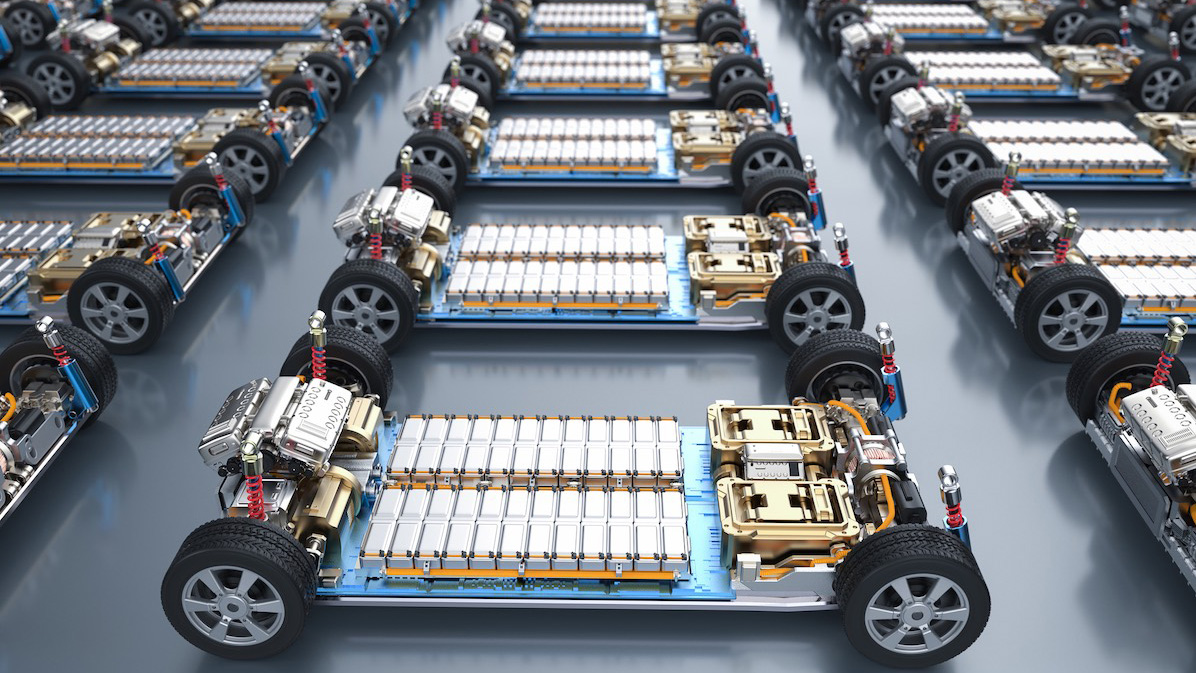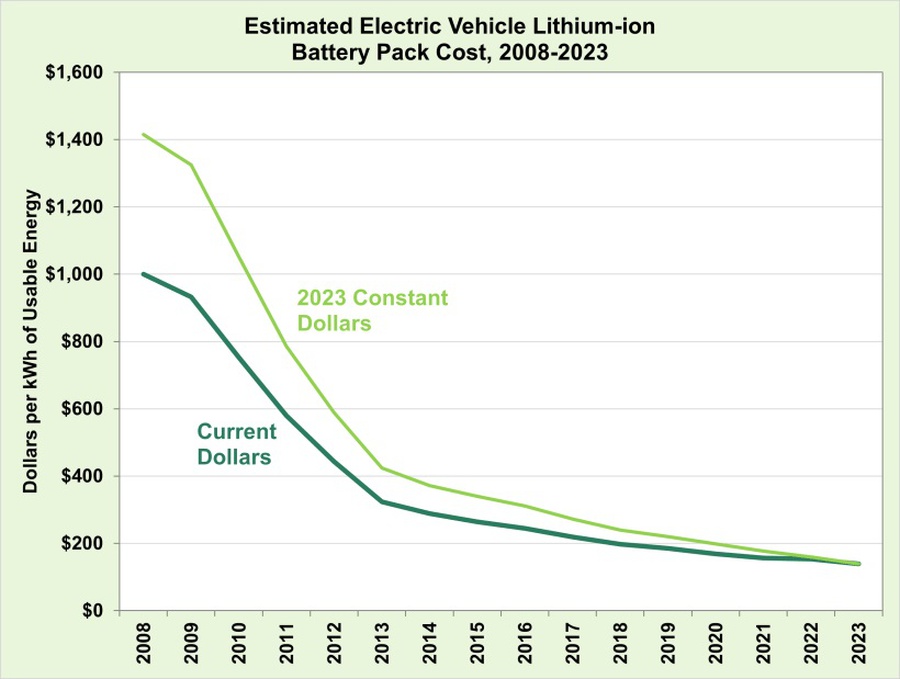Battery energy density and costs are the main factors driving the electrification of vehicles. These elements relate directly to the range and affordability of electric cars. The DOE's data shows the average cost of a battery pack has fallen from $1,415 per kilowatt-hour in 2008 to just $139 per kilowatt-hour in 2023, measured in constant 2023 dollars.
Several factors have contributed to this significant cost reduction. Improvements in battery technologies and chemistries have played a crucial role. Manufacturing processes have also become more efficient. The higher production volume has helped too, with the figures based on a production scale of at least 100,000 battery packs per year.
To put these numbers into perspective, a 100-kWh battery pack would now cost around $13,900, while an 80-kWh pack would come in at about $11,120. This represents a massive change from over a decade ago.
Today, you can buy an electric vehicle with an 80-100 kWh battery for between $35,000 and $40,000. Compare that to more than ten years ago when a similar amount of money would get you a car with a 24-30 kWh battery and a much shorter driving range.
Looking ahead, there's potential for costs to decrease further. New technologies are in development, and production scales might increase. The long-term impact of recycling on material costs could also play a role in future price reductions.
This trend in battery cost reduction has made electric vehicles more accessible to a broader range of consumers, paving the way for wider adoption of this technology in the automotive industry.
Source: InsideEVs


